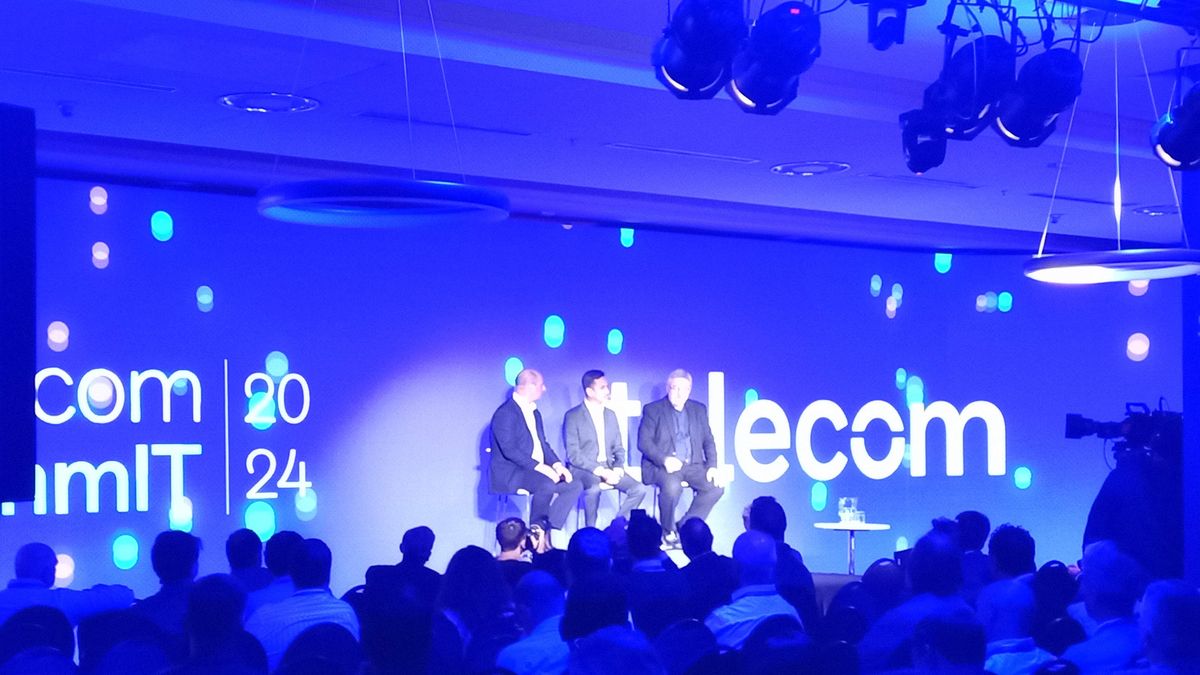Telecom made a new edition of Telecom SummITorganized by the company’s corporate business unit. As in previous years, the meeting brought together clients and company executives in a space where speakers of diverse origins analyzed the experiences, digital solutions and business cases that are trending in the B2B world (business between companies).
The 2024 edition had as its axes the themes of Artificial Intelligence, connectivity, cybersecurity and cloudamong the most relevant technology verticals.
The CEO of Telecom, Roberto Nóbile, in charge of the opening and welcome, highlighted that Argentina “renewed expectations” based on a macro context of “stability”. In that framework, he said that it opens “the opportunity to accompany our clients to do things better and have more sustainable businesses.”
Nóbile also highlighted that Telecom has invested more than US$6 billion in the last decade, resources that were allocated to networks, systems, technology, cloud, data centers and platforms, among others.
“This year, despite having started with a complex situation, we have announced an investment of 520 million dollars” to accelerate digital transformation. “This transformation is not an option, it is a necessity”he highlighted.
Investment in technology as a way to achieve greater competitiveness
He also said that the world will demand greater competitiveness from Argentina in all its aspects. “Today, technology is the link that will allow us to meet that demand,” he highlighted.
The manager also emphasized that Telecom goes through a transformation process based on technology and that the objective is not only to transform itself but to help all its clients to do so as well.
In this sense, Julio Hutka, director of B2B Business at Telecom, later explained in a press conference in which he participated Scope that “Telecom has evolved its business model for several years. The traditional communications business migrated to a business of digital platforms, digital businesses. Therefore, to the traditional business of selling communications services, a new business is added for all segments that has to do with digital solutions.”
“The B2B world is a unique challenge, because Telecom has a much more consultative perspective since we have an installed base: clients who are operating with Telecom, who There are around 5,000 in the highest value segment (public sector, large corporations and companies) and the SME segment at the top. “It basically covers all Argentine productive activity, services and governments,” he added.
“In this universe of clients two challenges coexist. One is how to continue digitization to gain efficiency in traditional businessin the industry in production, in banking, who have digital tools, to make it more productive and more efficient. And basically more competitive. The other challenge is generate new business Above all, what is the tradition of each of the industries, that they be based on technology. When we work with our clients, all companies have the challenge of building a new business based on 100% digital,” he added.
What is Telecom’s contribution or value proposition for this segment?
“The proposal is escalate over services that we already have operational in our clients, basically everything that is communications, and accompany them in a consultative manner, knowing each of the industries and each of the technological platforms, in the deployment of these tools that allow a more digital management, both in the traditional business as well as the new one,” explained Hutka.
“And at the end of all this we are going to find that there is a lot of technology, which is what we address, but the great challenge for all clients is how to change the way you do things. The ones that brought them here and made them successful companies maybe it’s not the waynor are they the processes that will make them successful companies in the future. And that is the famous cultural change that we promoted in this event. Technology by itself is going to provide a lot of information and a lot of insightswhich when well processed will indicate that a process that was done in one way must now be done in another way. Because the customer is changing. And the client expects a different level of services or products than what they are currently receiving,” he concluded.
The advancement of digital services in companies
Regarding the growth of the B2B business since Telecom faced its own transformation from a traditional telecommunications company (ICT) to a technology company (Tech Co), Hutka explained that of the total billing of this business unit 75% still corresponds to traditional communication services and 25% to digital services.
But in terms of service contracts, the proportion becomes equal parts about the total. Furthermore, in the cases of larger clients, the provision of contracted services in the digital sphere now represents 60% of the pieagainst 40% of networking.
This business unit It currently has around 13,000 business clientsof which 5,000 are the largest corporations and the remaining 8,000 correspond to SMEs of various sizes.
Regarding the end of the year, the director of B2B Business said that his area will register a slight increase in billing measured in hard currency, because although the volume of services provided increased, prices decreased. “It is an extremely competitive market,” graphed to explain this phenomenon, which was also influenced by the adverse economic situation for some of its clients.
During the Telecom SummIT, which took place at the corporate headquarters located in the Barracas neighborhood, speakers from companies such as Google Cloud, IBM, Amazon Web Services, Cisco, Fortinet, Nokia, Huawei, Molinos Rio de La Plata, among others.
Source: Ambito
I am an author and journalist who has worked in the entertainment industry for over a decade. I currently work as a news editor at a major news website, and my focus is on covering the latest trends in entertainment. I also write occasional pieces for other outlets, and have authored two books about the entertainment industry.




